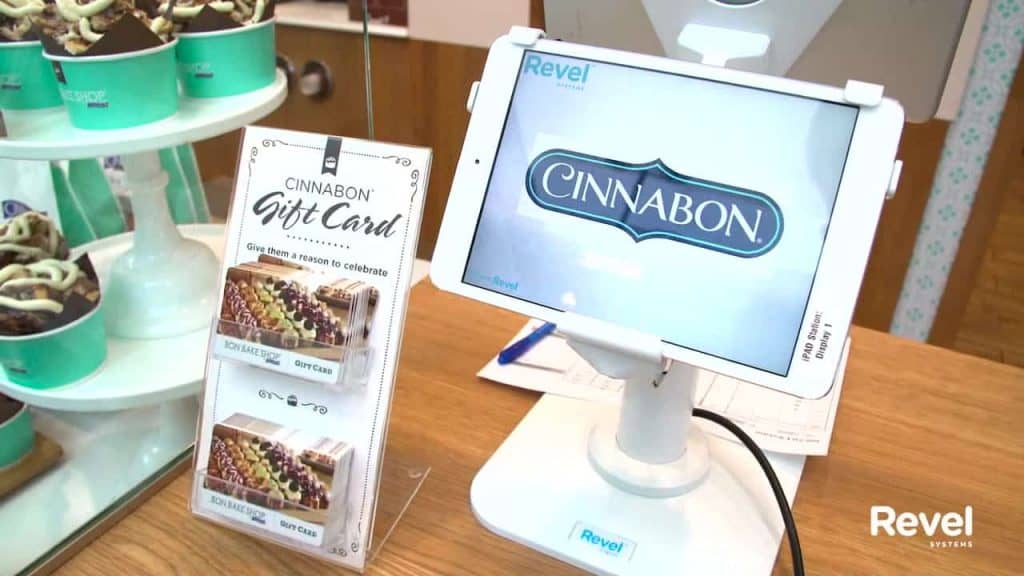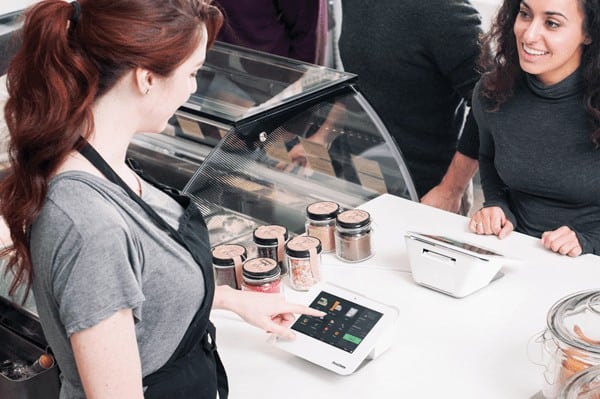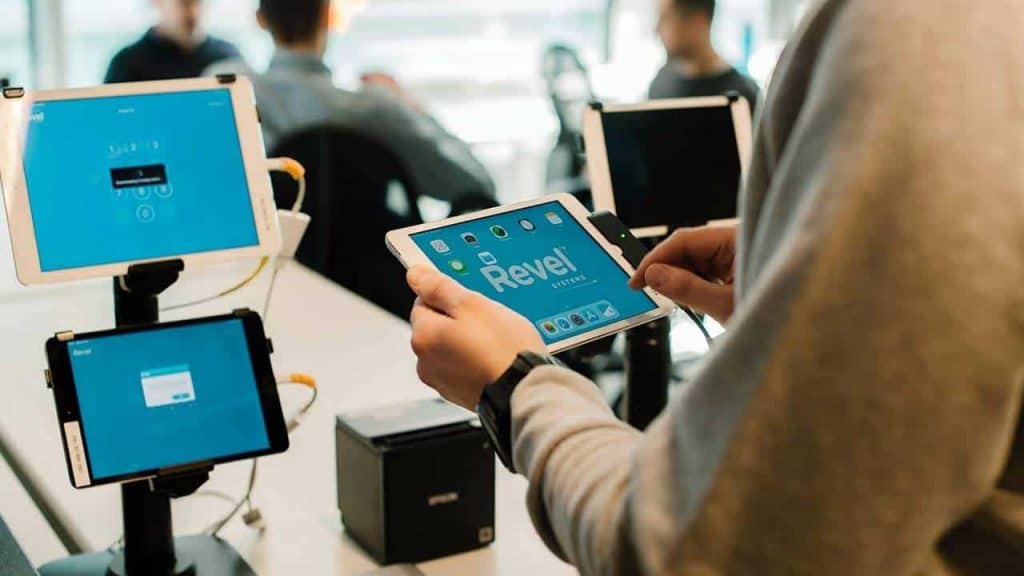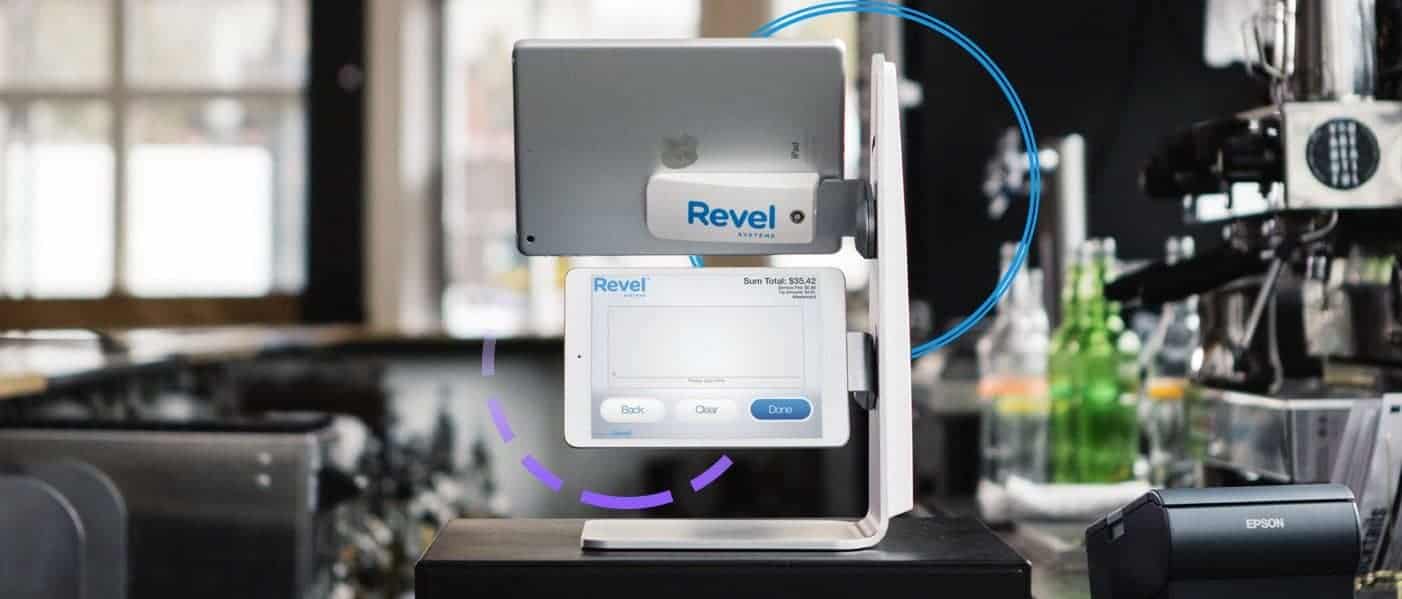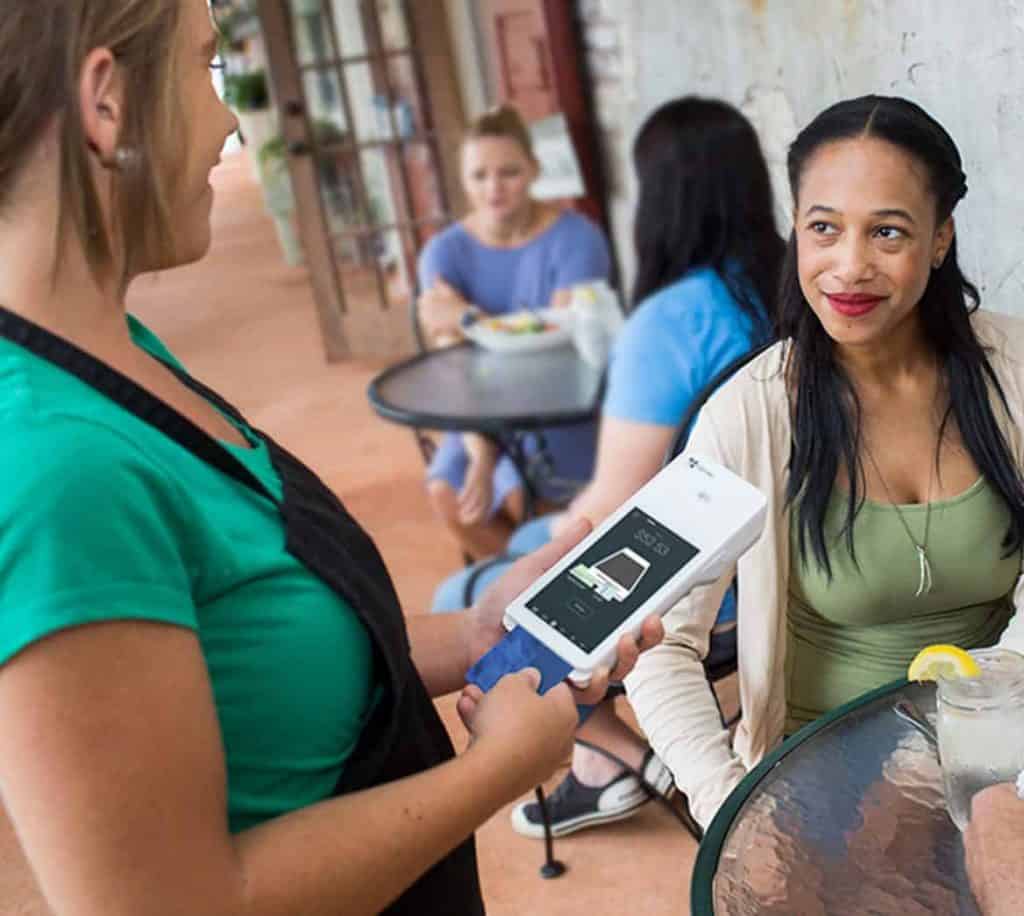
Clover is a streamlined POS system that allows you to take orders from all locations: website, counterside, curbside, and even contactless. Clover’s key features include loyalty programs, back office accessibility on any device, employee management, state-of-the-art reporting, and integrations with third-party apps like QuickBooks, MailChimp, WooCommerce, and more.
Revel is an iPad-based POS system for restaurants, quick service, bars, pizzerias, coffee shops, and more. With Revel, you can easily split bills, hold bar tabs, and accept a variety of payment types. You can oversee employee performance, manage inventory items, and view insightful reports that show you the state of your restaurant operation.
For our Clover vs. Revel comparison, Clover is the clear winner. When it comes to features and functionality, POS hardware options, customer support, ease of use, and other key areas we researched, Clover simply has more to offer.
Another area where Clover beats out Revel is in pricing. Their Lite plan starts at $9.95 per month, with transaction fees as low as 2.3% + $0.10 per transaction. There are also flat fees to accept mobile payments, as well as to license hardware from the provider.
Revel, on the other hand, starts at 10X that amount, at $99 per month (for three-year contracts). They also charge a flat transaction fee which is not disclosed on their website. On their company blog, they describe a “reasonable” flat fee as between $15 and $50, so expect something in that range.
In the end, both of these systems are leaders in the industry, so let’s break down each provider’s features, pricing, and support.
Revel Systems vs. Clover: Side-by-Side Comparison Summary
 |
||
|---|---|---|
| Software Only Starting Price | ||
| Payment Processing Fees | ||
| Free Software Trial | ||
| Cloud-Based | ||
| System Accessibility | ||
| Customer Support | ||
| Ideal Customer Size | ||
| Industries Served |
Revel Systems vs. Clover: POS Software Comparisons
In our reviews, we typically run through various features of each system. We then compare each system’s respective capacity for those features to determine which system completes that function best.
However, with Revel Systems and Clover, we’re going to take a different approach. We can sum up system feature comparisons fairly quickly. Then we’ll move to an in-depth comparison of two key differentiating features that set the systems apart.
System Feature Summaries
Both Revel and Clover include most of the standard features you would expect to find in a POS solution. They also include advanced features.
These features, for the most part, are on par with one another as far as quality and strength. Clover maintains a slight edge over Revel Systems, but the two come close in the feature category.
Below we will provide an overall score for each system’s entire feature set. That score is based on user reviews from various review sites, all compiled and combined into one score.
Both systems offer the following:
- Payment processing (see fees above)
- All forms of payments including mobile
- Online ordering
- Mobile ordering
- POS reporting
- Employee management
- Customer display
- Sales tracking
- Inventory management
- Gift cards
- Loyalty programs
- Customer relationship management
- Table-side ordering and payment
- Menu management
- Kitchen management
- Always-on mode
Key Differentiating Features
The following two system attributes set the two apart. Many customers would call them the deciding factors that drove their decision to go with one system of the other.
Integrations
Integrations are important because they let end users complement their point of sale system with third-party apps.
These apps complete tasks the POS system itself does not, allowing you to build a system around your unique needs.
Revel Systems
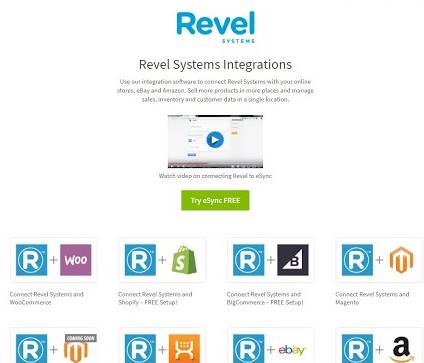
Customers can select from a variety of apps to add to their Revel POS solution. This lets them align their system with their business model and complete all required functions from one centralized platform.
About Revel Systems and Integration
The Revel Advantage portal provides POS, payment processing and other business tools for retail and restaurants of all sizes. It combines software, hardware and credit card processing into one system that is tailored to your needs.
Revel systems allow you to integrate with a wide variety of third party apps to help you run your business. These include loyalty programs, inventory management and online ordering solutions. It also allows you to automate data entry and eliminate double-data entry across channels. Kosmos eSync connects your POS with your online stores and brick-and-mortar locations, providing up-to-the-minute sales reports to save you time and money.
Unlike most POS systems that force users to choose between a full set of business features or the ability to expand later, Revel offers both. This flexibility is especially important for smaller businesses that may need to adjust their business model in the future. For example, Revel's POS system is designed with customer service in mind with a 24/7 phone line and support website.
For quick-service restaurants, Revel provides a range of menu and inventory management tools to help you boost online sales and improve back-of-house operations. It also supports a variety of payment methods and loyalty programs to improve engagement with customers. For full-service restaurants, Revel POS supports self-serve kiosks, table reservations and mobile ordering to improve efficiency in the restaurant.
Revel systems are compatible with a number of leading payment processors and gateways including Moneris, Adyen and Tyro. You can also integrate with a number of popular online ecommerce platforms, automatically synching inventory levels and sales between your POS, online store and brick-and-mortar locations.
Revel users report continual issues with its integration with the QuickBooks accounting app. Aside from that, the system is fairly robust when it comes to integration capabilities.
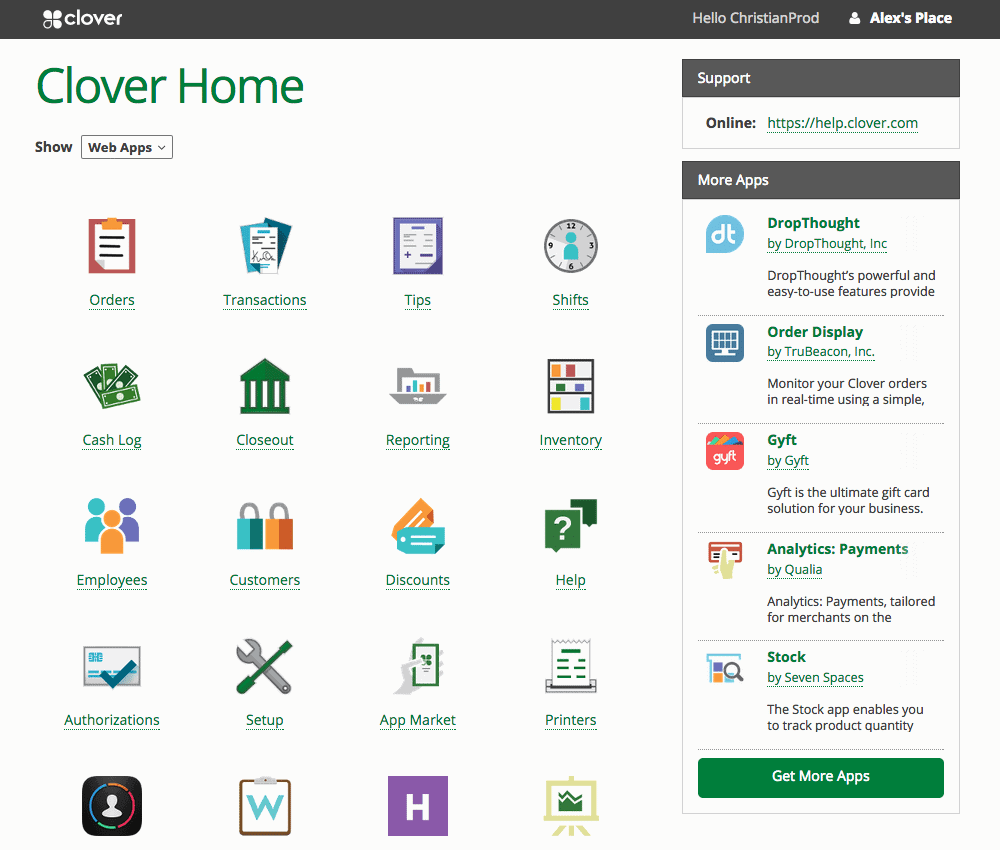
However, Revel’s integrations don’t come close to Clover’s 300+ integrations.
Plus, you can purchase those 300+ third-party apps from the Clover website, making integration a short, painless process. To be sure, Clover users love its App Market because it eliminates so many unnecessary steps involved with integration.
One final point: The Clover App Market includes apps from way more than 20 different categories. On the App Market, you can integrate everything from insurance apps to human resources, charitable giving, and telephony apps.
WINNER: Clover by a landslide
Multiple Location Management
Both systems are built with capabilities allowing business owners to manage operations of multiple business locations from a single system. This can become tricky and you need a system that has nailed down the recipe for multi-store success. How do Clover and Revel Systems compare?
About Multiple Location Management
Centralizing management, operations and reporting across locations can help streamline processes, improve communication and ensure consistent product quality. Whether your business is spread out over fixed or temporary locations like storefronts, warehouses, pop-up shops or even home offices, there are many opportunities and challenges when growing to multiple locations.
Managing teams is challenging enough when everyone works together under one roof, but add in different locations across town or even states and it can seem even more difficult to delegate tasks and keep the team focused and motivated. It’s important to implement standard operating procedures, structure and training so that no matter where your employees are working, they have a clear idea of what is expected and how to do it.
This also helps to make it easier to transfer shifts between locations if necessary. Delegating responsibilities to the people who are best equipped to handle them can make your job much easier, and also free up more time for you to focus on higher level goals.
If your company is managing multiple locations, you may want to look into a system that offers centralized inventory management. This means that you can allocate inventory from a single location and share it with others, and track all the inventory states (coming in, outgoing, committed or on hand) across all your locations in real-time. This will allow your staff to place orders based on availability and reduce the need for manual overrides at individual stores or locations.
Revel Systems Multiple Store Location Capabilities
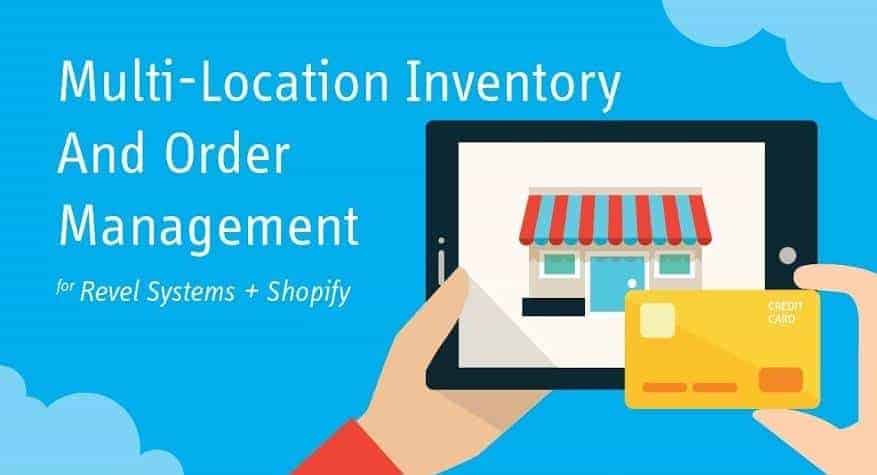
The system can handle over 1,000 locations and the information about them is accessible from a single dashboard. Owners or managers can also update system attributes from that single dashboard and apply them across all locations.
For example, a franchise fast food restaurant owner could put in place a standardized menu update with new items or pricing. They can then apply those changes to the Revel systems in every one of their locations.
There are a few downsides to Revel Systems’ multi-store capabilities. These features are only available to you if you opt for their most expensive option, the enterprise plan. Plus, many users claim Revel’s sales reps lead prospects into believing that these multi-store features are standard in every package.
Want to know how much the enterprise plan costs? You’ll have to call Revel Systems for a personalized quote. Unfortunately, Revel Systems does not provide an idea of how much its enterprise system would cost you.
Clover’s Multiple Store Location Capabilities
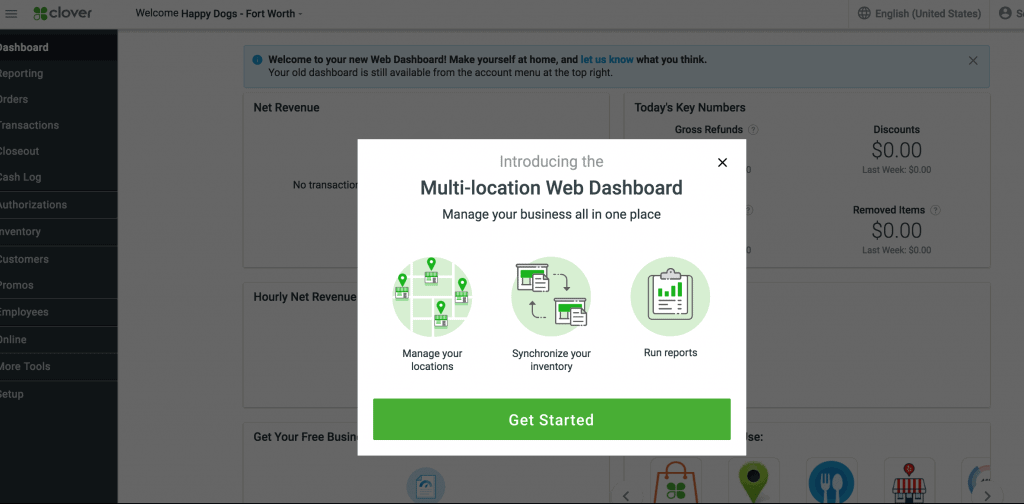
Clover allows you to view metrics across multiple stores. It’s easy for business chain owners to run sales reports containing data from all stores on a single mobile device.
A few potential deal-breakers damper excitement around Clover’s multi-store location features. We’ve read multiple user reviews claiming Clover’s multi-store functionality is not robust enough and has lots of room for improvement.
Another flaw is the unexpected manual work required to use these features. For example, you can create new items, add price, category, etc., from one dashboard and apply that to all stores.
However, once that item is entered, you must pull up each individual location to set its unique tax rate. That becomes a problem when you own one thousand storefronts. This flaw essentially renders this feature useless unless you own five or 10 store locations. Regardless, it could easily be enough to dissuade a potential customer from acquiring the system.
WINNER: Revel Systems
Customer Sentiment on Additional System and Company Attributes
We compare user ratings from multiple, highly-reliable sources to aggregate composite ratings for various categories. We present these composite scores on a scale from 1 to 10, with 10 being best and 1 being worst.
How do Revel and Clover compare to each other in the additional system attributes we measured?
Customer Support
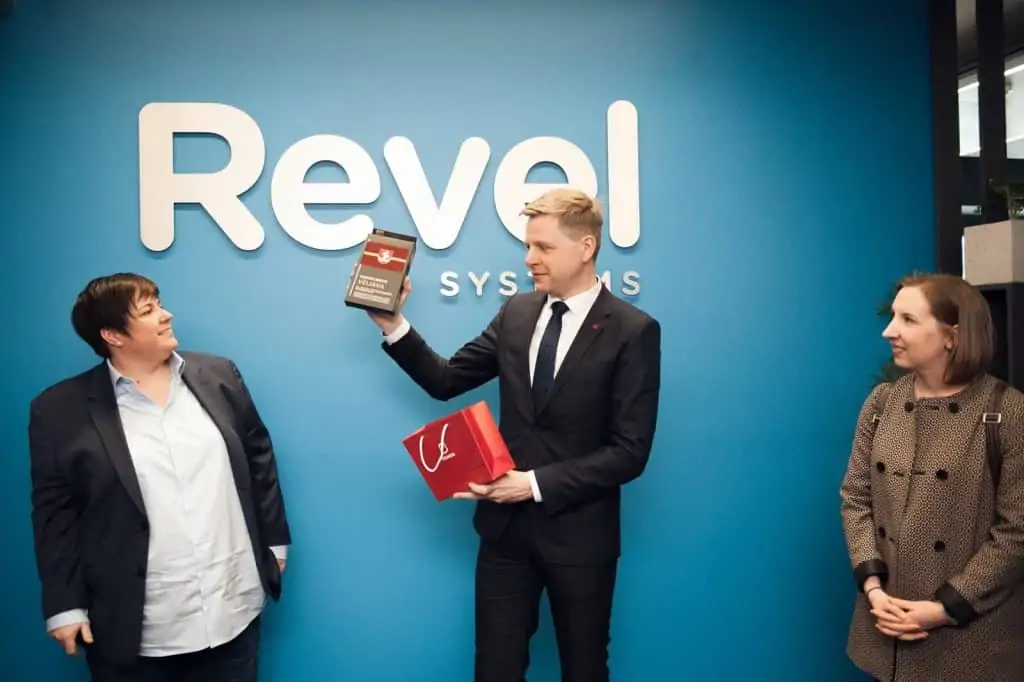
Clover’s Composite Score: 7.2
WINNER: Revel Systems
Ease of Use
Revel’s Composite Score: 8.1
Clover’s Composite Score: 8.4
WINNER: Clover
Value for the Money

Clover’s Composite Score: 7.8
WINNER: Clover
Features and Functionality
Revel’s Composite Score: 7.3
Clover’s Composite Score: 8.0
WINNER: Clover
Overall System Rating
Revel’s Composite Score: 7.8
Clover’s Composite Score: 8.0
WINNER: Clover
Revel Systems vs. Clover: POS Hardware
Revel Systems offers a wide variety of POS hardware, including components designed for both restaurants and retailers.
Unfortunately, you can’t purchase hardware directly from Revel’s website because the company does not post any pricing there. Rather, you must call the company for a quote on every hardware package and component it sells.
Clover—unlike most POS system providers—manufactures its own hardware components. It sells that hardware in pre-set packages and clearly lists pricing for each. The most basic package starts at $499 with no add-on components.
Clover also sells individual Clover-made hardware components as well as third-party components. These include barcode scanners, printers, cash registers, etc. Pricing varies depending on which component you select.
Clover’s transparent pricing constitutes a much better purchasing experience for the customer.
WINNER: Clover
Is Revel Systems or Clover Your Best Bet?
Clover tread on Revel Systems in our reviews and comparisons above, winning six out of eight comparisons. Although, in many of those, Clover won by a small margin.
Does that mean Clover is the better system? Not necessarily. Our comparisons and user reviews are subjective, and our opinions may greatly differ from yours.
If you’re looking for a POS system to manage an enterprise-level chain of stores, Revel would be a better choice.
Are you looking to integrate all business functions with your POS solution and operate everything from one centralized system? If so, Clover would better suit your needs.
Be sure to do your due diligence and dig deeply into any system you shortlist. Ask for a free trial or a demo so you can see the system in action. Take your time to decide.
If you’re seriously considering one of these two systems, learn more by reading our detailed review of Revel Systems. Then check out our comprehensive Clover review to gain a better overall perspective on each system.

